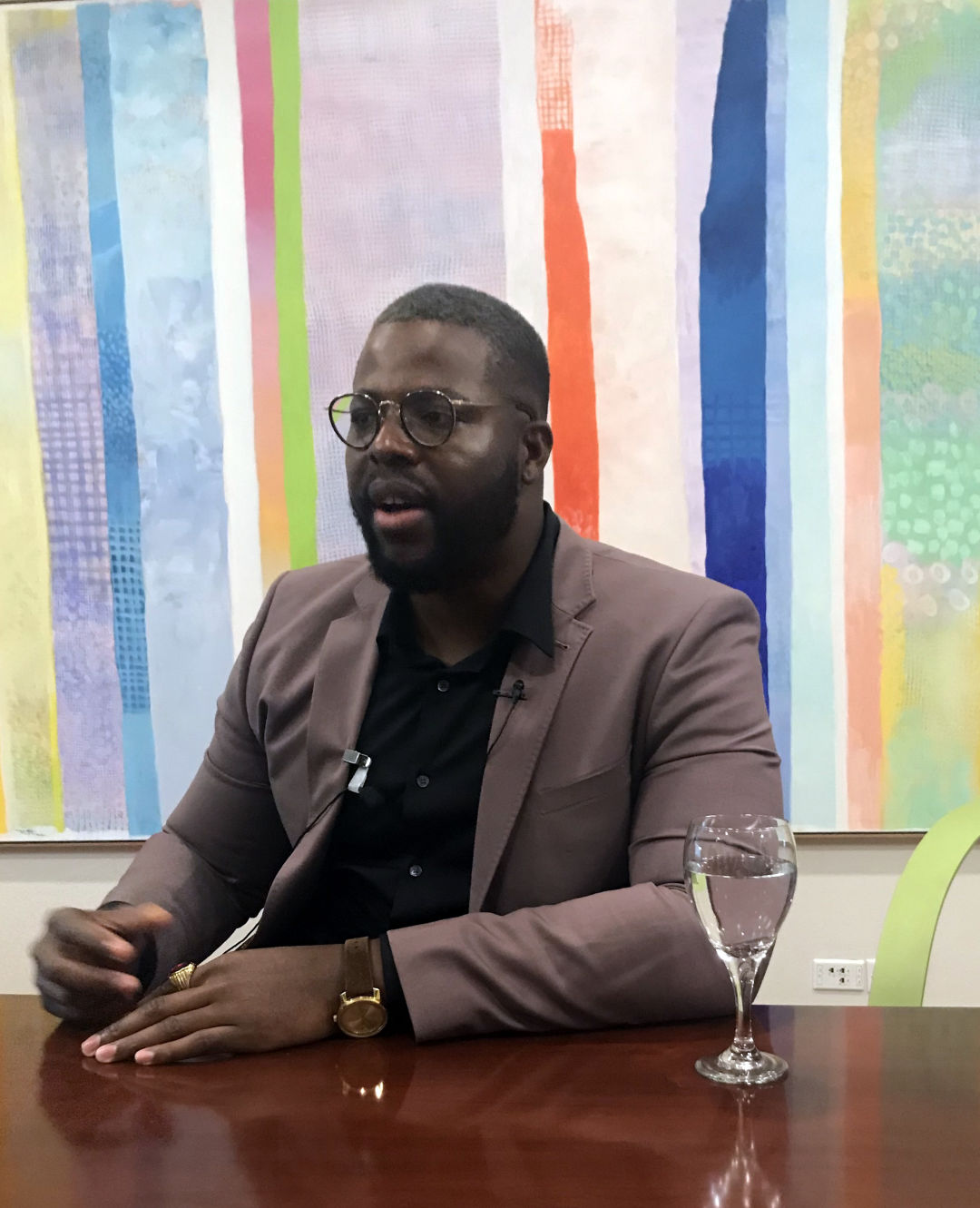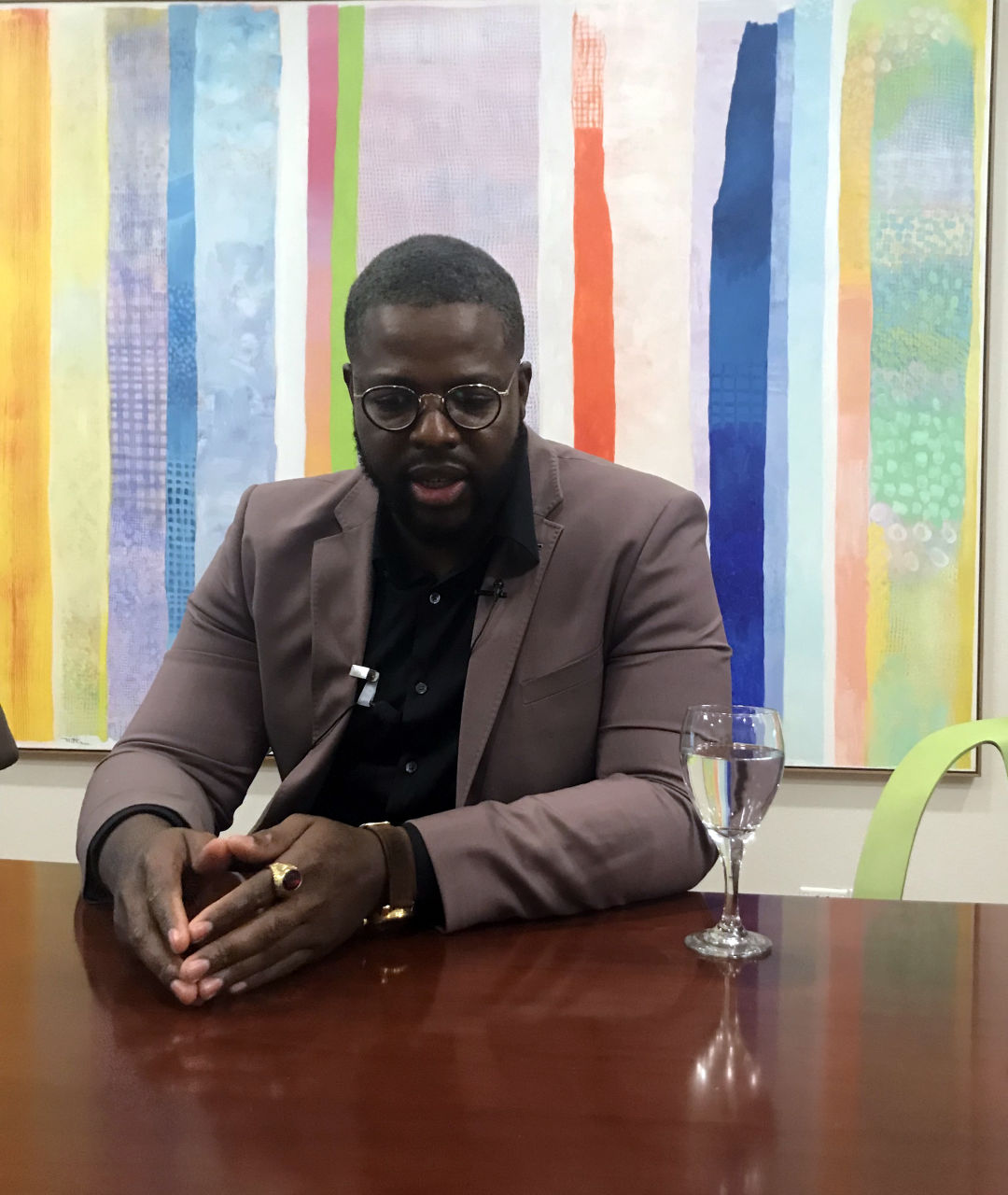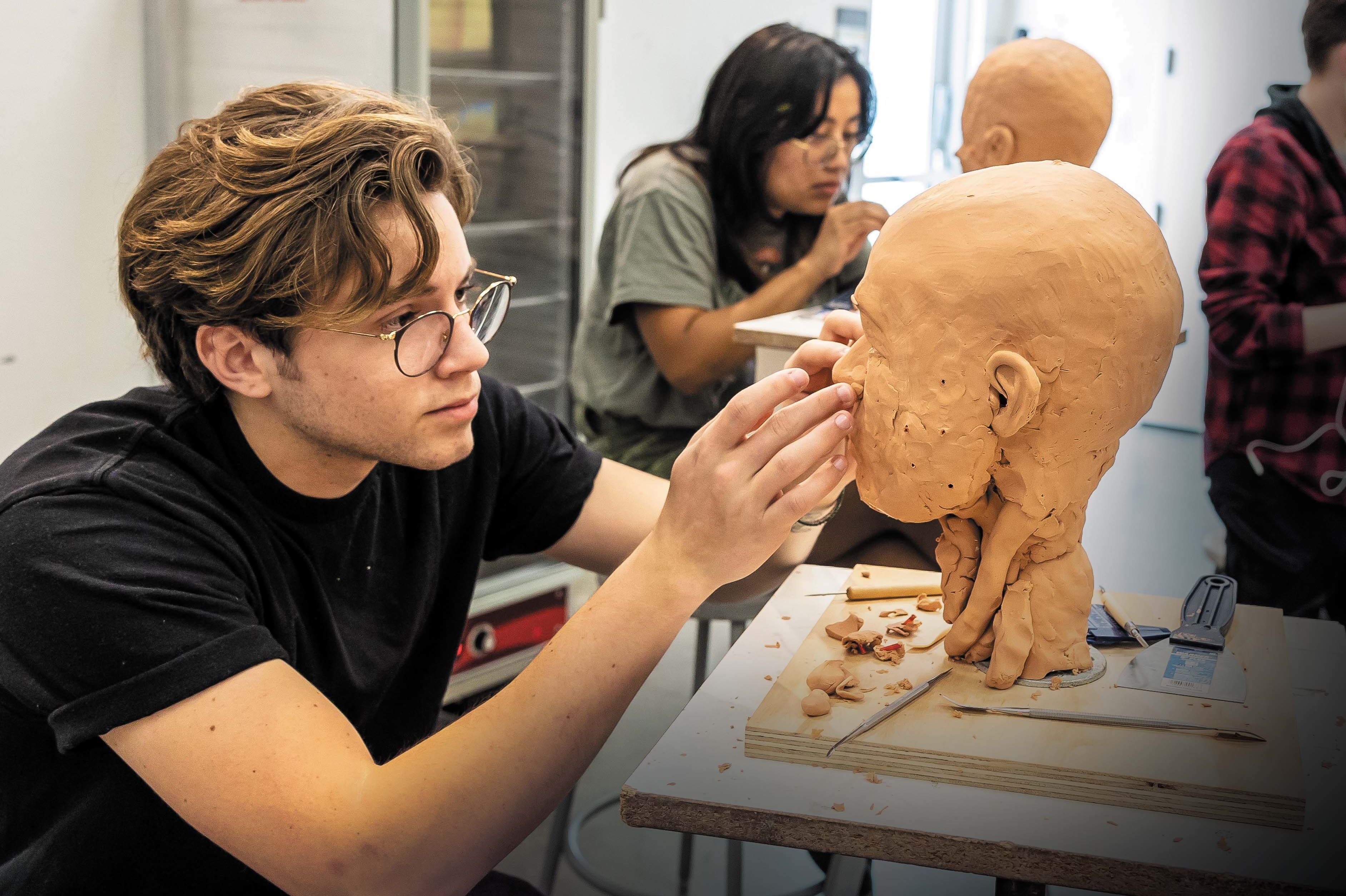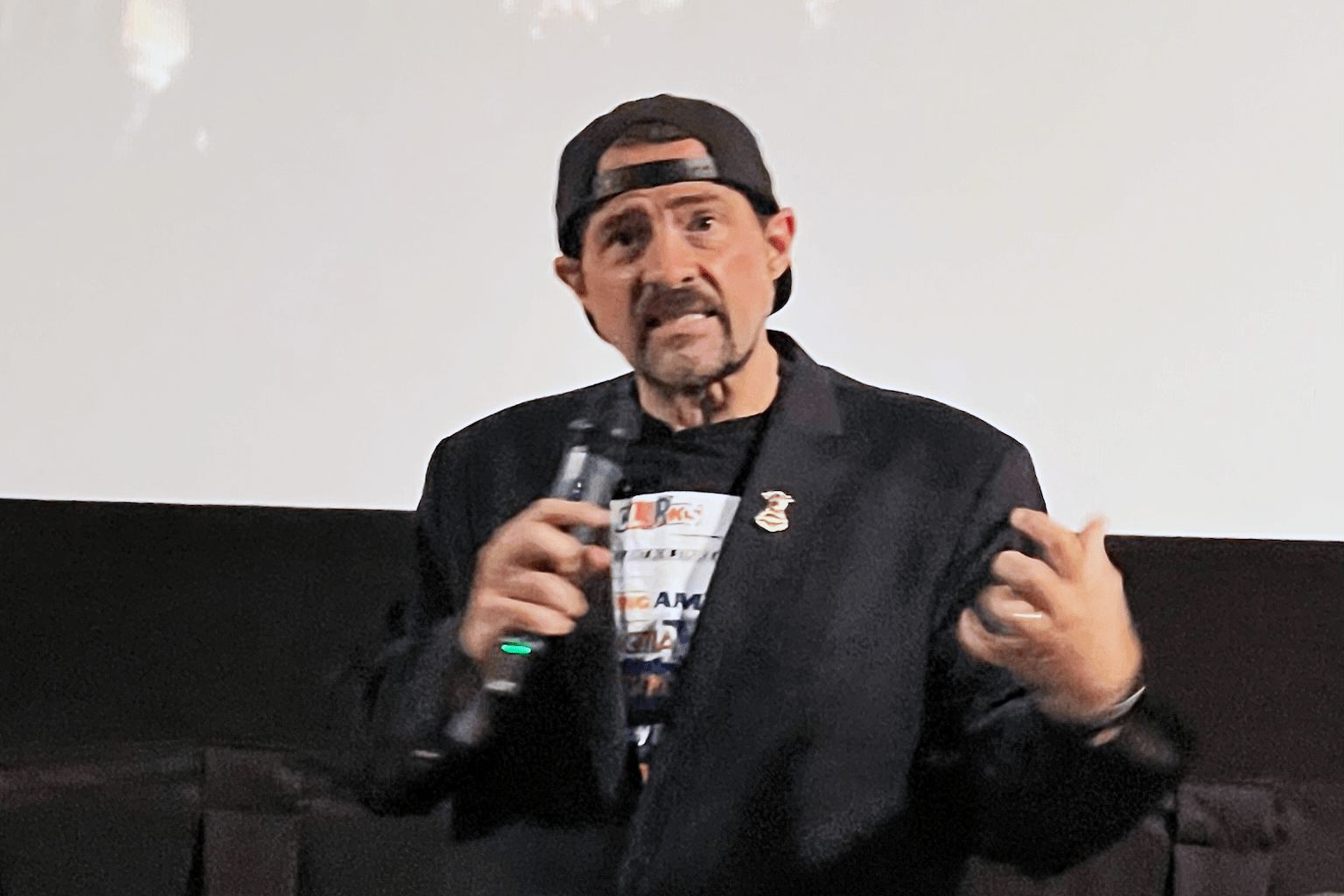Winston Duke Talks Life Lessons, Representation and Black Panther at Ringling College

Winston Duke stars as M'Baku in Black Panther and Gabe Wilson in the upcoming horror film Us.
Image: Megan McDonald
You probably know actor Winston Duke as M'Baku from the hit Marvel movies Black Panther and Avengers: Infinity War; his character is a fierce warrior who's a rival, then a much-needed ally, of Chadwick Boseman's Black Panther. Tall, handsome and muscular, M'Baku wears a suit of armor, is draped in fur and often wears a stern "come at me" expression. In both Black Panther and Infinity War, he plays a critical role in the battle of good vs. evil.
In real life, Duke is equally tall, handsome and muscular, but also—unlike his super-serious Marvel counterpart—quick with a laugh. Visiting Sarasota as part of Ringling College of Art and Design's Studio Lab program, a collaboration between the college and Semkhor Productions, and talking to a packed crowd that included students from Ringling College as well as Booker High and Middle Schools—Duke reflected on his experience playing M'Baku, Black Panther's historic place in the Hollywood canon, and what's to come in Black Panther 2 (just kidding; he's sworn to secrecy).What draws you to a movie?
Change. I want my character to be different at end than he is at beginning. What excited me about M'Baku—other than that Black Panther was a huge film, and it afforded a lot of great opportunities—was that he had to change throughout the movie, and it was up to me to show his journey in an interesting way.
How would you say Black Panther has changed Hollywood—and you?
It's meant everything to me. It's changed my life. And it's changed Hollywood in many ways—for example, the idea that movies with big financial commitments cannot also be tied to social justice issues. There isn't, and should not be, a dichotomy between artistic pursuits and financial pursuits. They don't have to be in conflict; we can and should fund them. I also think Hollywood is changing for the better. There's still a lot of work to do, we still live in a flawed world full of flawed systems, but that's why it's up to artists like us, and institutions like Ringling, to prepare students to challenge and change present structures.
Black Panther references many traditional African customs. When creating a new project or character based on a different culture, how can can Hollywood avoid appropriation?
Start from a place of empathy. Look at people as whole beings. Find the root cause of who they are today. It really is a conversation of allyship. If you approach something from a place of wanting to be an ally, to show something true, what you'll do is different than if you're trying to take something, adopt it and say it's yours.

What advice would you give to students who want to follow your career path?
I've learned a lot of things, and one is that there's no better time than now to show students that it gets better. Being an artist is one of the most uncertain paths you can take. It might take a lot of commitment and time and energy, but it works, and it's worth it. Keep pushing.
You also need to look for things that challenge you to be better and different than where you've come from, but that also celebrate you and your history. I think a lot about who I am, my place in the world, what I do and say. Knowing yourself helps you know what you need. I've gotta be a good Winston for Winston—if I let the wrong people in my village, I'm not doing that.
What can we look forward to in Us, your next film?
It's challenging the horror genre, in which people of color are usually the first casualties. They get killed first, for no reason. "I'm going to go outside!" Dead. "Let's split up!" Dead. Instead, this movie is putting a black family at the center.
What's the most valuable life lesson you've learned?
Enjoy the process. We live in a product-oriented society that doesn't necessarily value the process—but it's the most important part of any creative situation.



